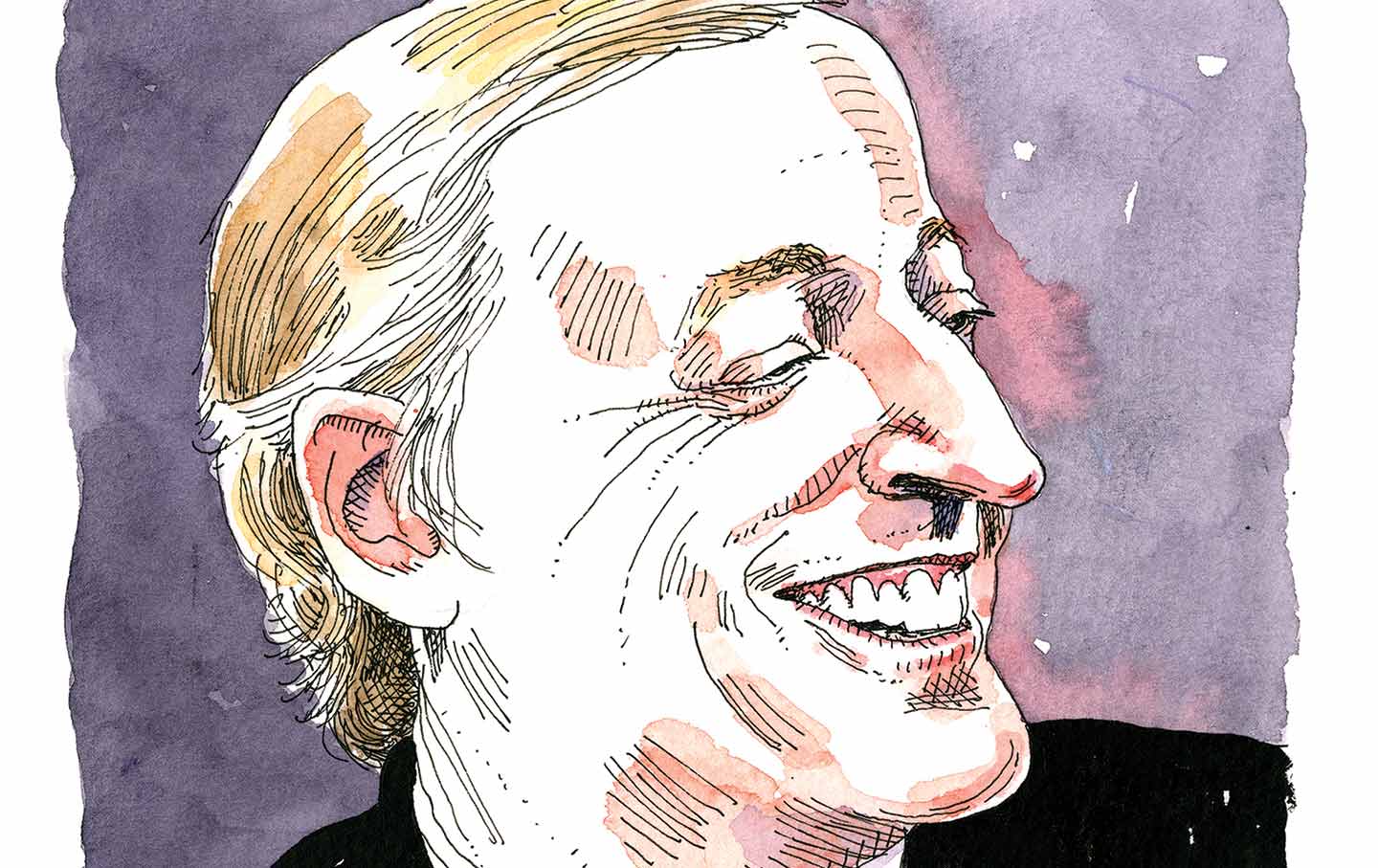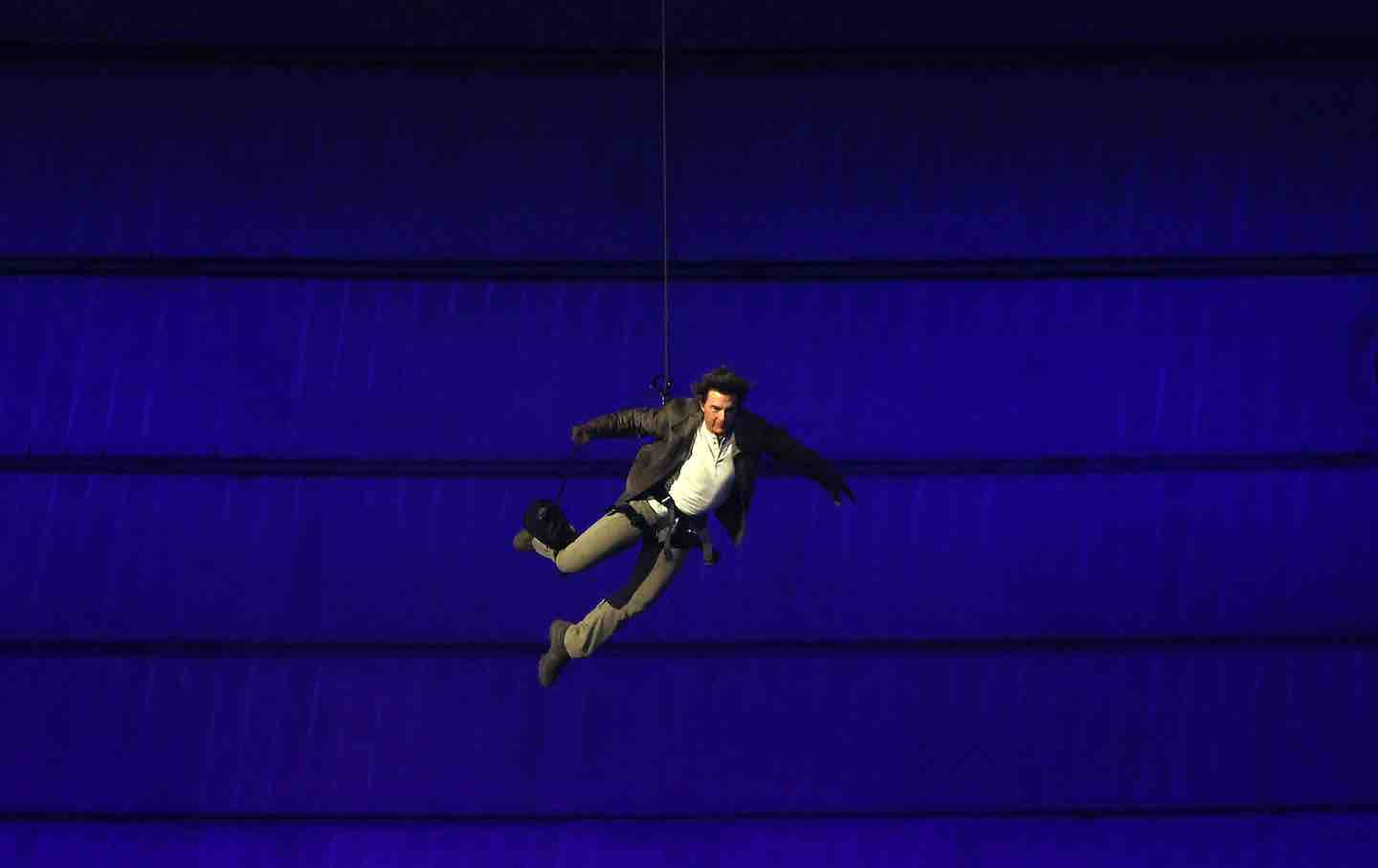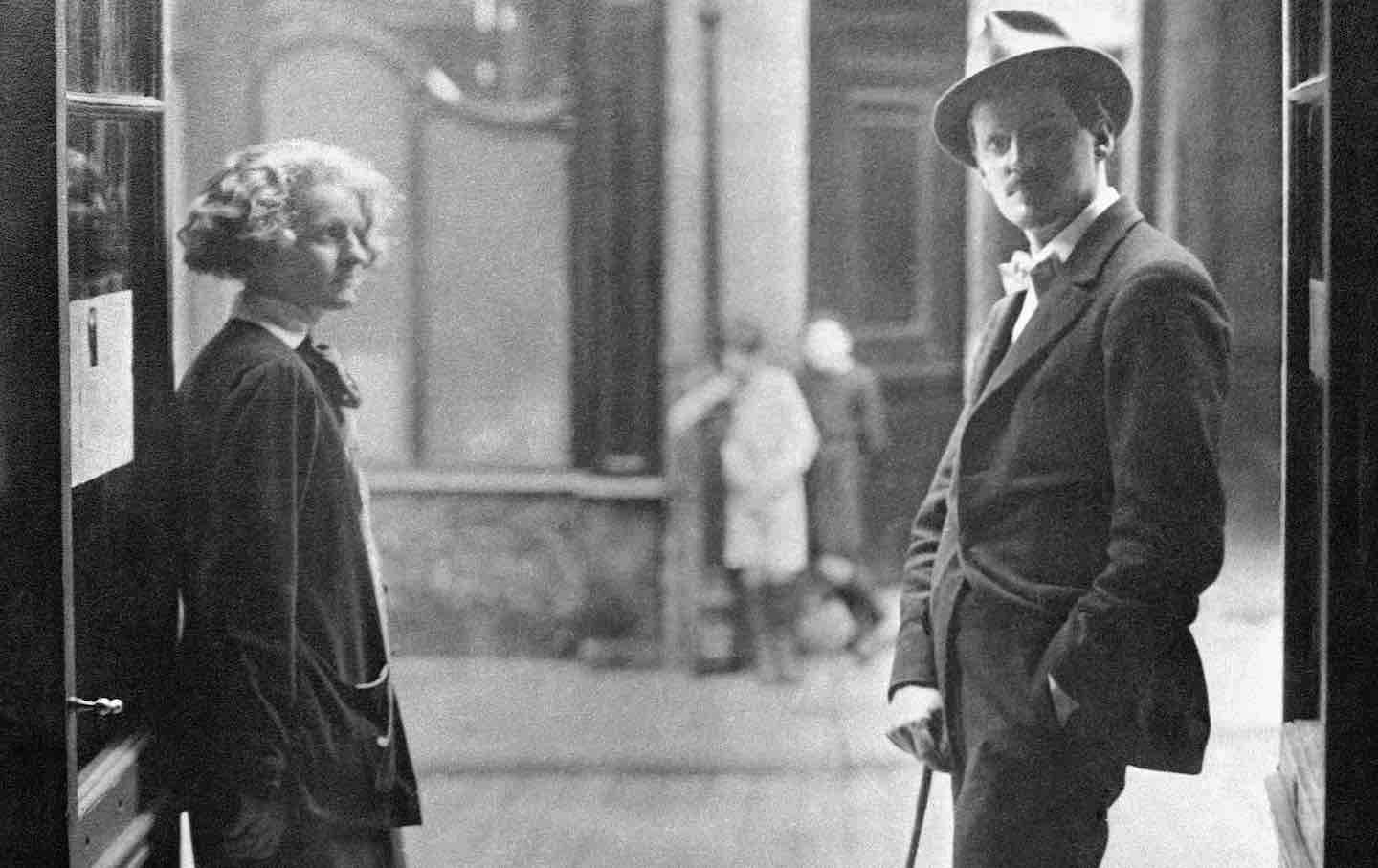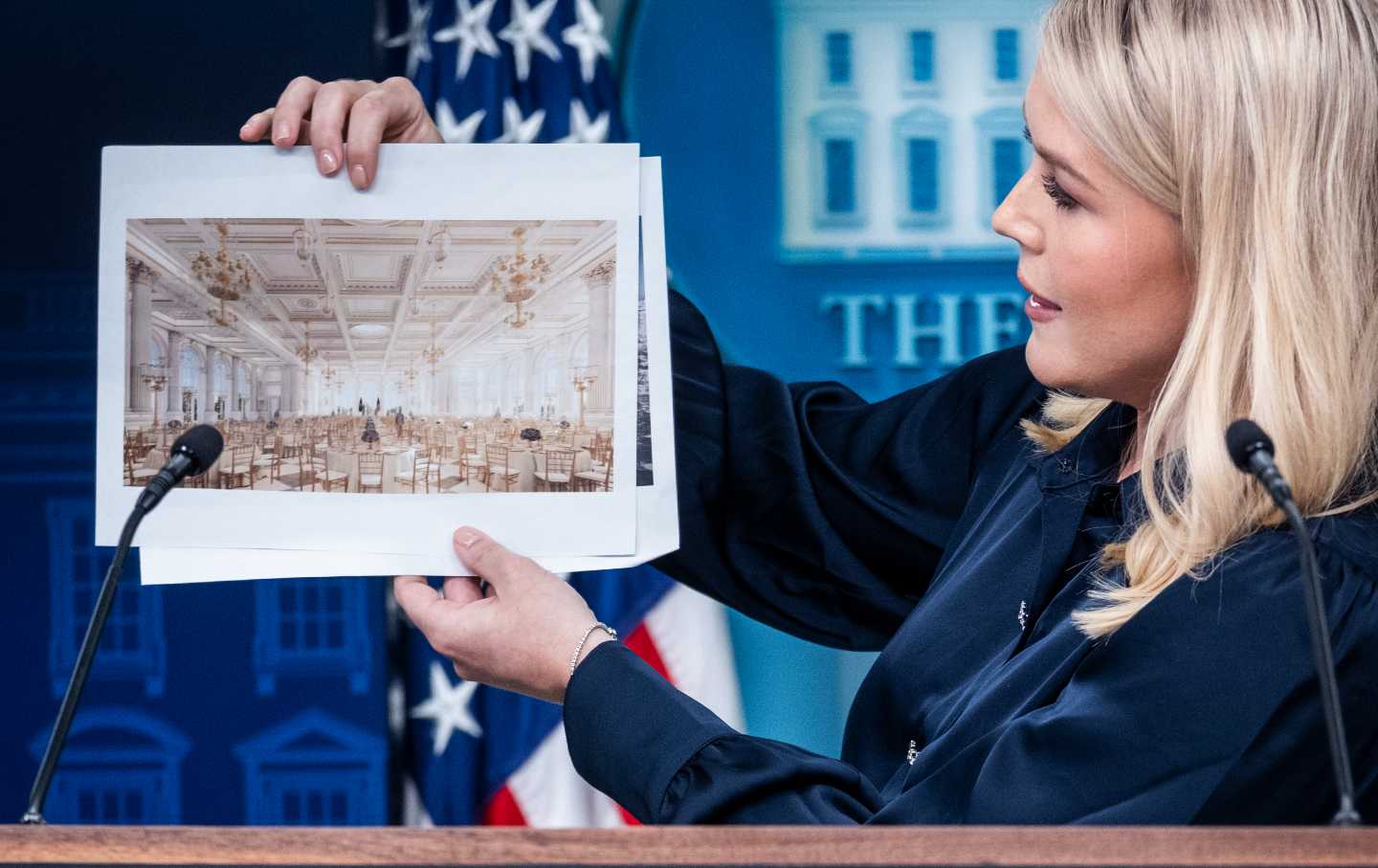The Ghosts of Ingeborg Bachmann

Books & the Arts
/
September 9, 2025
The ghosts of Ingeborg Bachmann.
Haunted by a dark past, the poet and novelist tried to explore the limits of language itself.
“The limits of my language mean the limits of my world,” Ludwig Wittgenstein declared in the Tractatus Logico-Philosophicus, his famously oracular 1921 opus. For Wittgenstein, the tragedy of language was the product of neither faulty grammar nor impoverished vocabulary. Instead, it was a matter of some intrinsic truncation: Even at its most capacious, language could represent only a sliver of the world. In a radio essay summarizing
Wittgenstein’s argument, the Austrian novelist and poet Ingeborg Bachmann observed that “even if our language were perfect and were able to describe the world perfectly, not a single problem that concerns us would be solved.”
Bachmann feared that her favorite philosopher might be right. Still, in her work as a poet and a novelist, she did what she could to resist his verdict, spending much of her writing career—from her first volume of poems, Borrowed Time, to her disheveled novel, Malina—trying to disprove his conclusions. She was determined to reach what she called, in yet another fragment on Wittgenstein, “the unsayable, the mystical, the limit”—and to do so with those blunt instruments, words.
Bachmann’s first attempt (at least in the medium of fiction) was The Honditsch Cross, a slim novella that she wrote when she was just 18. Now released for the first time in English in a characteristically lithe translation by Tess Lewis, it affords a rare glimpse into a usually meticulous writer’s more unpolished efforts. Like most juvenilia, the novella is of interest primarily because its author went on to do greater things. Compared with Bachmann’s later work, it is unassuming and unremarkable—realist where her more mature writing is oneiric, clear and crisp where her novel and poems are cloudy. But in its small and often clumsy way, it takes up some of the themes that would preoccupy Bachmann for the rest of her life: sexual violence, the deflations of nationalism, the search for an earthly utopia. And like all of Bachmann’s writing, in one way or another, it is about the quest to cross impassable borders.
Bachmann was born on a border: She grew up in Klagenfurt, a small city in the mountainous region of Austria that abuts Slovenia. In a short autobiographical text that she wrote for Northwest German Radio in 1952, she recalled, “I spent my youth in Carinthia, in the south, near the border, in a valley that has two names, a German and a Slovenian one.” But “near the border,” she continued, “there is yet another border, the border of language.”
Before Bachmann could even attempt to cross this fundamental border, she had to cross a preliminary one: the frontier dividing rustic Carinthia from sophisticated literary Vienna. “I subsequently made my way to Paris, London, and Germany,” she explained in her radio address, but “in my memory the journey from the valley to Vienna will always remain the longest.” Bachmann alighted in the foreign country of this capital in 1946, just after the end of World War II. She eventually received her doctorate in philosophy from the University of Vienna. Her dissertation, “The Critical Reception of the Existential Philosophy of Martin Heidegger,” is the product of an admirable desire to “bring the great man down,” perhaps more because of his Nazi affiliations than his ideas, which infused her later writings despite her nominal antipathy.
Current Issue

For the rest of her life, Bachmann was a compulsive crosser of national if not linguistic borders. She wrote librettos for the operas composed by her friend and collaborator Hans Werner Henze, then visited Cambridge, Massachusetts, where she impressed none other than Henry Kissinger during a seminar at Harvard. Next she went to Rome, which would become her primary residence until her death. From there, she migrated to Munich, where she worked as a dramatic adviser at Bavarian Television and a scriptwriter for the radio, then to Zurich, where she lived for a time with the Swiss novelist Max Frisch. Finally, she headed to Berlin, where she was hospitalized and then hospitalized again for her debilitating depression. Throughout, she allowed herself intermittent sojourns to Paris to see her on-and-off-again lover, the Romanian Jewish poet Paul Celan—and all the while, she wrote.
At first, she wrote radio plays and poems. Bachmann’s two volumes of poetry, Borrowed Time (1953) and Invocation of the Great Bear (1956), launched her to immediate celebrity: Before the age of 30, she had graced the cover of Der Spiegel and received the prestigious Gruppe 47 prize. Her masterpiece, however, was not a poem or a play but a faltering, fracturing work of fiction: Malina, published in 1971 and intended as the “overture” to a cycle of novels that she began in the mid-1960s. It is hard to say what, exactly, Malina is about or which of its hallucinatory passages are “real,” even in the world of fiction. The book is misty and indecisive by design. Its unnamed narrator is a woman writer in Vienna who is plagued by nightmares about—and possibly confabulated memories of—her violent father. In the end, she walks into a crack in the wall and disappears.
The cycle of novels that Bachmann hoped might follow, Todesarten, or Ways of Dying, was meant to feature a number of equally sinister men, offering a study of “the multitudinous ways in which individuals, particularly women, are ‘murdered’ by a society [that] erased and silenced them,” in the words of her frequent translator, Peter Filkins. But before Bachmann could complete the rest of the series, she died in 1973, at the age of 47, after she fell asleep while smoking and inadvertently set fire to her apartment.
Her own “way of dying” ensured that, for all her globe-trotting and glamour, Bachmann never managed to cross that first border, “the border of language.” Even escaping her own dialect of Austrian German proved difficult. In neither Rome nor Berlin nor Cambridge could she leave the native country of her mother tongue. “I no longer know why I live here,” she noted of her time in Rome, “for I write about Vienna, or, rather, when I write I am in Vienna.”
She was not only in Vienna but in a small part of it in Malina, which takes place not only in that fateful city but on a single street. “Really it’s only a side street,” the narrator clarifies, “more precisely a small section of the Ungargasse.” The speaker of these lines is a citizen of the claustrophobic domain she calls “Ungargassenland,” which consists of two apartments: the one she shares with Malina, a historian who works in the Austrian Army Museum, and the one where she meets her lover, Ivan, a callously cheerful Hungarian businessman.
The narrator, like Bachmann, chafes at the limits of her language. There is no better description of Malina than Bachmann’s own account of the Tractatus, a text that she regarded as an effort “to probe the unspeakable” and that ends with this resounding line: “That of which we cannot speak, we must pass over in silence.” The narrator of Malina—and, indeed, Bachmann herself—often tried to do the same.
Bachmann’s more developed works were all skirmishes with silence. As an adult, she wrote fitful texts that often lapse into reticence or splinter into fragments. If they never succeeded in surpassing the limits of speech—something Bachmann often acknowledged to be impossible—they nonetheless managed to dramatize the struggle between a word and all that it strains to say.
“Searching for names is pointless,” Celan wrote to Bachmann in 1957, an exhortation that she appears to have taken to heart: In Malina, the narrator is not only unnamed but skeptical of naming. Ivan “reacts immediately and jumps when his name is called,” but Malina “hesitates,” and the narrator admits that “I hesitate the same way in my turn,” as if she cannot quite believe that her name (whatever it is) applies to her. In one of the poems in Bachmann’s first collection, she asks, “How can the names stand / to carry the nameless?” But the sad, unstable woman who narrates Malina will never answer this question to her own satisfaction; she never even manages to make language work in the most basic ways. Her garbled phone conversations with Ivan are long strings of confusions:
I can barely understand you
Barely? What? So you can I can’t hear you very well, can you What…is something
No, nothing, later on you can
Even when they hear each other, they inevitably mis-hear:
This phone has its little tics
What? Somebody’s still jabbering away. You’re sick?
I said ‘tics,’ it’s not important, ‘tics’ with a t
These bafflements are reminiscent of Bachmann’s own correspondence with Celan, which was full of false starts and deletions, letters that ultimately went unsent, elaborate drafts that were reworked only to be rejected, apologies for all that both parties cannot stand to express. When a friend planned a trip to Paris in 1951, Bachmann mused: “I want him to take the many letters I have written to you, the wrong ones and the right ones—I never had the courage to send them off.” These letters were vexed articulations of the “important things that one can only say with difficulty, or not at all.” Did Bachmann dare to say these things? “I do not know if I should try,” she confessed. In an earlier draft, she had maligned her efforts as “very small attempts to speak.” Years later, she was still struggling. “I WILL WRITE TODAY IT IS DIFFICULT FORGIVE ME,” she explained in a telegram in 1957.
Perhaps Bachmann hesitated because she knew that to trap things in language would do violence to them. In both of the unfinished and posthumously published books that would have been entries in the Todesarten cycle, The Book of Franza and Requiem for Fanny Goldmann, women are “murdered” by the indignities of male misdescription. Franza loses her mind and undertakes an ultimately fatal trip abroad when she discovers that her husband, a psychiatrist and the author of a book about Nazi prison experiments, has been treating her as a subject, taking clinical notes about her in a secret journal. Meanwhile, the aging actress Fanny Goldmann falls into a deep depression when her lover writes an unflattering novel about her. “He had written down and gutted their seven hundred days and nights and numerous bottles of wine they had shared,” she reflects. Now she must endure not only his marriage to a younger woman but “the disgrace of…having been sliced up, boiled, and smoked like a pig.”
To describe these as “murders,” as both of Bachmann’s characters do, is surely to venture an obscene exaggeration. This was a woman who had watched the Nazis march into Klagenfurt as a girl—a woman who had reproached her own father for his early and enthusiastic embrace of Hitler—yet she still had the poor taste to say in an interview decades later, “Fascism is the primary element in the relationship between a man and a woman.” However unjust such relationships often are, however appalling patriarchy’s own special stock of cruelties may be, and however likely it is that fascism and misogyny are intimately connected, finding oneself distorted in a novel is simply not tantamount to being gassed in a Nazi death camp.
At times, Bachmann seemed to have grasped the perils of an incautious metaphor. “I cannot forgive myself for not hating you, for that poem you wrote, accusing me of murder,” she wrote to Celan. “Has someone you love ever accused you of murder, when you were innocent?” Yet in much of her own later work—in poems, in interviews, in fiction—she ended up doing the same, conflating the cruelties that mar interpersonal relations with outright crimes.
The narrator of Malina is yet another woman who is “murdered”—“It was murder” is the famous last line of the book, in the scene in which she vanishes into the crack—but here, her accusations are more understandable. Her father, who bears a striking resemblance to Bachmann’s own, is one of her murderers. (For her part, Bachmann denied the parallels, maintaining that the character was simply symbolic.) “I have to work harder and harder to avoid the hell I must have once inhabited,” she confesses. Then she adds, as if to convince herself, “But I do not remember.” Later she admits, “I don’t want to remember.”
In increasingly long and dreamlike sequences, the narrator remembers despite herself, even if what she remembers is evidently not what literally happened. In her visions, she has been imprisoned by her father in a dark hall “with dirty walls”:
My father walks on, removing one hose after the other, and before I can scream I’m already inhaling the gas, more and more gas. I am in the gas chamber, that’s what it is, the biggest gas chamber in the world, and I am in it alone.
Whatever it is that the narrator does not want to remember, it’s so awful that it cannot be recounted directly: It can only be fictionalized, scrambled, transmuted into a nightmare that is itself a deflection from the truth. Nor can the narrator’s trauma be recovered in one piece. Instead, it claws its way into the present, making greater and greater rents in the book’s fabric. Like Wittgenstein’s Tractatus, Malina is a text that circles around an unspeakable core—a text that is obliged to undo itself.
The Honditsch Cross is comparatively untroubled by its status as a written document. The novella reads like what it is: the fledgling effort of a precocious 18-year-old who would grow up to write much more interesting books. There is no inkling of the stuttering strangeness of Bachmann’s later work in this brisk, realist debut, which is written in the third person and plotted conventionally.
The year is 1813. The setting is the Carinthian countryside. Napoleon’s armies are occupying Austria and impoverishing the local farmers by forcing them “to supply large quantities of bread, wine, brandy, and meat” to the greedy soldiers; the locals, among them a theology student named Franz Brandstetter who has returned from school in Vienna to visit his parents, scheme to expel the occupiers. There are secret meetings, whispered warnings, and tests of loyalty. Ultimately, the Carinthian men form an opposition army, and Franz decides to join them.
The situation is a transparent reflection of Bachmann’s own. For one thing, the titular cross is a local landmark that would have been familiar to her. As Lewis notes in her helpful afterword, it “is an actual wooden cross in a wayside shrine erected in honor of fallen soldiers between the villages of Hermagor and Bachmann’s father’s hometown of Obervellach.” For another, Bachmann wrote The Honditsch Cross in 1944, when Austria was under Hitler’s control and much of the clandestine grumbling depicted in the novella was no doubt audible around her.
Bachmann’s diaries from this period reveal the enormous difficulties she faced while working on the novella. “I have firmly resolved to carry on reading when the bombs come,” she wrote in one 1945 entry. The diary also reveals her to be possessed of a moral fortitude that is rare in someone so young. She refused to participate in the Bünd Deutscher Mädel (the female wing of the Hitler Youth), plotted to avoid undertaking labor for the Nazi cause in Poland, and remained unprejudiced enough to enter into an extended flirtation with a Jewish soldier who was among the British troops that came to liberate her region.
The eventual author of Malina appears to have been an unusually thoughtful and even brave adolescent. So it is no insult to Bachmann to concede that, for the most part, The Honditsch Cross is a piece of decent juvenilia that no one would bother to resurrect were she not its author. Often, it allows itself outbursts of clunky exposition. And yet within this thin slip of a book are many of Bachmann’s hallmarks. There is a passage about the Windish, an ethnic group in the Carinthia who “have their own language, which neither Slovenes nor German speakers completely understand. With their presence, they seem to want to blur the borders—the border of the country, but also of language, customs, and mores.” There is a remarkably sophisticated subplot about Fini, the waitress that Franz will ultimately bed, who has no choice but to tolerate harassment at the hands of the boisterous French soldiers. When the general of the local troops tries to force himself on her, “a mute struggle kept the two suspended—the woman in fear, the man in desire.”
Best of all, there are flashes of brilliance when it comes to Bachmann’s treatment of Franz, who is as conflicted and ambivalent as a character in a Dostoyevsky novel. Though he joins the rebel army in a fit of high ideals, passionately eager to fight “for his native soil, for his homeland,” Franz’s fervor wanes almost immediately. His first months as a revolutionary recruit are agonizingly uneventful. “He’d waited for weeks, waited and waited,” Bachmann writes. Finally, after a stretch of intolerable inertia, Franz resolves to desert—only to reverse course and stay when action breaks out at last.
The Austrians are victorious in this particular battle, but no thanks to Franz, who dies an ignoble death not on the battlefield but afterward, in the wake of the post-tussle celebration. In the final scene of The Honditsch Cross, a stray French soldier shoots Franz in the stomach as he hastens to catch up with his regiment after tarrying too long with Fini. The novella’s parting image is unglamorous, the very picture of punctured illusions. Franz lies crumpled on the road as his compatriots march on without him. The only testament to his suffering is the worn wooden cross. The homeland for which Franz died is evidently not so glorious. If there is any hint of utopia to be found, it must be elsewhere—beyond Carinthia, beyond Austria, perhaps beyond our world and its threadbare words.
In a series of lectures delivered in Frankfurt in 1959 and 1960, Bachmann located this utopia squarely in literature. It was literature, she claimed, that “confronts flawed language with a utopia,” because literature was nothing less than the dream of the perfection of language.
The difference between Wittgenstein’s approach and Bachmann’s hinges in part on the nature of their respective unsayables. For the philosopher, at least as Bachmann read him, what could not be netted in words was the mystical, perhaps even the divine. “There are indeed things that cannot be put into words,” he wrote. “They make themselves manifest. They are what is mystical.” If “God does not reveal himself in the world,” it does not follow that God does not reveal himself at all—only that God resides beyond the farthest reaches of our speech.
Popular
“swipe left below to view more authors”Swipe →
What Bachmann and her characters struggled to find the language for, in contrast, was not God but atrocity—the recent atrocity of the Holocaust, the ongoing atrocity of everyday brutality, the perennial atrocity of the human talent for evil. “Since admissions of culpability for Nazi crimes did not take place in Austria until the late 1980s,” note the two professors who edited and translated a volume of Bachmann’s nonfiction, she maintained “that fascism endured in the private domain long after denazification in West German public life had taken place.” Bachmann may have been wrong to equate patriarchal injustice with the terrors of the Holocaust, but the narrator of Malina is certainly right to observe that in postwar Austria, “society is the biggest murder scene of all.” No words could do justice to the legacy of Nazism, but silence was intolerable.
Thus, for Bachmann, the insufficiency inherent in language is precisely what compels us to speak—to resist those “plunges into silence,” as she called them in her Frankfurt lectures. “A new language is what responds to reality where a moral, epistemological jolt has occurred,” she concluded. Wittgenstein’s thesis in the Tractatus was not workable for a postwar Austrian writer who could not speak of the Holocaust but also could not pass over it in silence. The language of literature, then, is not merely aesthetic but cognitive: It can create a “transformation” that “neither firstly nor lastly strives for aesthetic satisfaction, but rather for a new capacity to comprehend.” It shows us the world in a different and not always bearable light.
Perhaps this is why Bachmann’s own writing is rarely beautiful. It is as cracked and curdled as her world was; it tries to find names for what often goes beyond naming. It was, in her eyes, nothing but a heroically futile insistence on speaking the unspeakable.
Sometimes, even Bachmann despaired in the face of her impossible task. In 1959, she wrote to Celan of “this language in which I no longer have any faith.” But that same language is the only place we can ever reach, as well as the final border that no human can ever cross. In an uncollected poem that she wrote in the early 1960s, Bachmann lamented that we are consigned “always to live among words, whether one wants to or not.”
What was most incredible was that, usually, Bachmann wanted to. “Deliver me, my word!” she pleaded in one poem. Because that’s the thing about utopia: It is not a promise, but a prayer.
Donald Trump wants us to accept the current state of affairs without making a scene. He wants us to believe that if we resist, he will harass us, sue us, and cut funding for those we care about; he may sic ICE, the FBI, or the National Guard on us.
We’re sorry to disappoint, but the fact is this: The Nation won’t back down to an authoritarian regime. Not now, not ever.
Day after day, week after week, we will continue to publish truly independent journalism that exposes the Trump administration for what it is and develops ways to gum up its machinery of repression.
We do this through exceptional coverage of war and peace, the labor movement, the climate emergency, reproductive justice, AI, corruption, crypto, and much more.
Our award-winning writers, including Elie Mystal, Mohammed Mhawish, Chris Lehmann, Joan Walsh, John Nichols, Jeet Heer, Kate Wagner, Kaveh Akbar, John Ganz, Zephyr Teachout, Viet Thanh Nguyen, Kali Holloway, Gregg Gonsalves, Amy Littlefield, Michael T. Klare, and Dave Zirin, instigate ideas and fuel progressive movements across the country.
With no corporate interests or billionaire owners behind us, we need your help to fund this journalism. The most powerful way you can contribute is with a recurring donation that lets us know you’re behind us for the long fight ahead.
We need to add 100 new sustaining donors to The Nation this September. If you step up with a monthly contribution of $10 or more, you’ll receive a one-of-a-kind Nation pin to recognize your invaluable support for the free press.
Will you donate today?
Onward,
Katrina vanden Heuvel
Editor and Publisher, The Nation
More from The Nation

What was it about Buckley that made him so attractive to liberals—and what was it about liberals that caused them to be attracted to conservative figures like Buckley in the first…
Books & the Arts
/
Jeet Heer

After a strange, controversial career, he has become one of the few figures who upholds the old rules of Hollywood—where the human body is the greatest special effect.
Books & the Arts
/
Vikram Murthi

Zachary Leader’s book on Richard Ellmann’s landmark work on James Joyce asks whether a biographer can be considered an artist.
Michelle Taylor

But Trump’s doomed proposal does give us a revealing glimpse into his state of mind.
Kate Wagner




